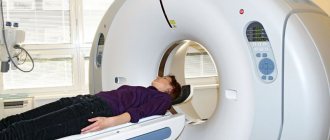Why does dizziness occur when changing posture?
There are several conditions that may be responsible for the fact that you feel dizzy when standing up.
Almost entirely related to improper functioning of the heart muscle. Veins and arteries that do not have sufficient tone are relaxed while a person is, for example, lying in bed in the morning. Let us list the pathologies that accompany a weakened feeling when standing up:
- low or too high pressure readings;
- interruptions in the functioning of the middle ear;
- VSD;
- problems with the nervous system;
- psychological stress;
- monthly bleeding in women.
Additional symptoms of dizziness and their causes
When dizziness occurs, there may be other symptoms that accompany it. You need to pay attention to them to help your doctor diagnose the disease.
The most common symptoms associated with dizziness are:
- slight nausea or vomiting;
- Strong headache;
- loss of coordination (orientation in space), feeling like you want to fall;
- cardiopalmus;
- pressure surges or changes are observed;
- bleeding from the ears or nose;
- general weakness.
Important information
The presence of these symptoms may indicate the presence of a disease, especially if such conditions recur.
You feel dizzy when you get up if:
- Pathologies of the vestibular apparatus. Unsteady gait, nausea, irregular heartbeat, and tinnitus are also observed.
- If blood flow in the inner ear is disrupted. Accompanied by increased blood pressure, sometimes memory loss is observed.
- Inner ear injuries. Vomiting, hearing loss, headache if the patient stands up suddenly.
- Neuritis. The head begins to feel dizzy in the morning for no reason, as well as nausea or vomiting.
- The presence of inflammation in the ear. There is usually a rise in temperature, as well as severe dizziness.
When dizzy and these signs are present, patients usually seek qualified help.
Otherwise, what dizziness means can be determined by additional symptoms.
Let's describe each of the options:
- If, when you lie down and when you get up, nausea is added to dizziness, this may mean several problems at once. For example, pregnant women may experience similar discomfort and this is normal. There may also be a problem with the nervous system or serious poisoning. Nausea is a sign of gastrointestinal dysfunction; in combination with dizziness, this means that the problem is at a serious stage.
- If, in addition to dizziness, a headache begins, and most importantly, everything in the eyes suddenly becomes dark and vision function decreases, this means that there is not enough nutrition for the optic nerve, the eye block. This can be a serious cause of visual impairment, which means you need to see a doctor as soon as possible.
- If dizziness occurs not only when changing body position from horizontal to vertical and vice versa, then this is a sign of a blood pressure disorder. A serious illness that can lead to dangerous problems, even death. For example, if the pressure rises too sharply and the vessel cannot cope with it, the artery may well burst and lead to internal bleeding, and this is a high risk of death.
- If, in addition to feeling dizzy, it seems that all sounds are becoming quieter and less distinct and at the same time the vision is slightly darkening, this may be a signal of a malfunction of the person’s hearing system. This condition is otherwise called Meniere's syndrome. Here you also need to see a doctor as quickly as possible in order to normalize the functioning of the hearing organs and avoid chronic diseases.
- Dizziness can also indicate a disorder of internal organs, and more specifically, the thyroid gland. The fact is that the thyroid gland secretes a special hormone - adrenaline, which regulates the functioning of the circulatory system; if there is an excess of it, the pressure can increase. Because of this, the vessels are overloaded and cannot cope with blood circulation.
In the case of acclimatization, you just need to wait a couple of days until the body itself adapts to the existing conditions and everything gets better, however, there are drugs and vitamins (C and A) that facilitate this process.
It happens that dizziness when getting out of bed or sofa is accompanied by a number of additional unpleasant symptoms. Let's look at which ones:
- unbearable headache, throbbing in the temples;
- weakened state, reluctance to engage in daily activities;
- nausea, vomiting;
- feeling of plugs or pouring water in the ears, extraneous sounds;
- it becomes difficult to inhale air;
- heart rate increases;
- The victim breaks out in a cold sweat.
This is a partial list of conditions that occur when you feel dizzy when getting out of bed. An individual may have his own specific reaction.
Reviews
Ekaterina Mikhailichenko, 63 years old, Dnepr
Lately, I have been frequently experiencing dizziness when getting out of bed. Initially, of course, I attributed this feeling to my age, but a week later I decided to see a doctor because I had strange noises in my ears. First of all, after the examination, he recommended taking a clinical blood test. Having received the results, it turned out that the hemoglobin level was significantly lower than normal. To be honest, I was very surprised, because I always tried to monitor proper nutrition.
First, the doctor prescribed a drug in the form of tablets to increase hemoglobin. The symptoms did not go away and after a two-week course, having taken the test again, nothing has changed. Most likely due to age, the drug was poorly absorbed. Then I was prescribed intravenous infusions. Although the procedure is not painful, it is unpleasant. The doctor said if this doesn’t help, we’ll have to prepare for a blood transfusion. To my great happiness, the following analysis was much better in terms of indicators. It was possible to completely normalize the hemoglobin level only after 2 months. Although now I have to take maintenance medications.
Lidiya Shamatrina, 37 years old, Yekaterinburg
I recently had a terrible incident, so I want to warn others to be careful. In the morning, as usual, I got out of bed. There were no signs of trouble, but then suddenly I felt very dizzy. I tried to move on, but I couldn’t resist and fell. The saddest thing is that I hit my head on the corner of a nearby cabinet. I already lost consciousness from the pain, it’s good that my husband was nearby and was able to call an ambulance.
At the hospital, after lengthy examinations and tests, they found out that the result of dizziness was orthostatic hypertension. In general, nothing terrible or life-threatening, just because of the sudden change in position, the pressure jumped significantly. But as a result of the blow, I was diagnosed with a slight concussion. If I had known that this was possible, I would never have tried to walk with dizziness. You need to carefully lie back in bed, wait at least a couple of minutes and then get up again, but without sudden movements. The doctor also advised taking a few deep breaths to normalize the heart rate.
Luchezar Bednyansky, 28 years old, Yalta
I have long been an adherent of the raw food lifestyle. Of course, I don’t eat any animal food, everything is vegan. I had never had any problems with my health, but then my head began to feel dizzy when I stood up suddenly. To be honest, I was very upset, but I decided not to panic ahead of time and began to do breathing exercises. I realized for myself that in the case of dizziness there is absolutely no effect, but I really like the state after doing the exercises. I haven’t felt such a surge of strength and lightness of thoughts for a long time. This is what it means – all life is in breathing!
Then I decided to see a doctor. I chose a well-known practicing homeopath, I did not want to go to traditional specialists, so as not to judge and impose my opinion. After the examination, he prescribed sugar balls, but did not make a diagnosis. I took them for some time, of course, but there was no effect at all; on the contrary, the dizziness became more and more severe, and tinnitus appeared.
Friends persuaded me to go to a specialist and I ended up at a local clinic. After the examination, the doctor prescribed several blood tests, an ultrasound of the abdominal cavity and a cardiogram. The results, of course, did not make me very happy. It turned out that the level of sugar and hemoglobin in the blood was below the permissible norm, and in general the body was exhausted. With the help of injections and IVs, I quickly began to recover, but now I don’t know at all how to organize nutrition without harming myself and the environment, because I’m not ready to eat animals.
Yura Zakharov, 30 years old, Moscow
I went through a divorce in August. This greatly shook my nervous system, causing insomnia, dizziness, and anxiety. I hoped that it would get better with time, but the condition only worsened. I had to consult a doctor. After the examination, the local specialist referred me to a psychotherapist. He prescribed sedatives and advised me to go in for sports. I chose swimming because there is a good swimming pool near the house. After a week of such simple therapy, my dizziness disappeared, and after a month I completely forgot about the alarming symptoms.
Causes of orthostatic dizziness
Orthostatic is a type of dizziness that occurs in a standing position as a result of a sharp decrease in blood pressure. Typically for people over sixty years of age. Sometimes found in young people. Let's look at the causes of dizziness.
Physiological
They are not caused by pathologies and disappear after certain effects on the body. For example, when treatment with medications that cause blood pressure abnormalities is completed. These medications may include antidepressants.
Pathological
Caused by the presence of painful symptoms, namely:
- high sugar;
- atherosclerotic plaques;
- heart diseases;
- hypertension.
Causes of dizziness when standing up
If a person does not get out of bed smoothly, then dizziness may occur, which will be a signal of diseases or other processes in the body. Dizziness when standing up is most often observed due to the following reasons:
- Poor nutrition. This is especially true for people who dramatically change their diet, for example, reducing its calorie content or removing vitamins. The body does not receive the energy it needs and therefore reacts with dizziness when getting out of bed. In this case, it is necessary to understand the correctness of the diet.
- Dehydration. Lack of fluid in the body can also cause this condition. We must not forget to drink water on time; this also applies to people who engage in physical labor, athletes, those who spend a long time in a hot room or in the sun, as well as in case of poisoning.
- Overwork, lack of strength. If the body is exhausted or has worked for a long time without proper rest or food intake, then dizziness occurs. In this case, rest and proper, balanced nutrition are needed, which will restore the vitality of the body and allow it to function normally.
- Anemia. People with this disease have problems standing up due to objective factors. Lack of oxygen for the functioning of tissues and cells of the brain.
- Diseases of the vestibular apparatus or malfunctions of its functioning. This organ is also responsible for balance; if there are pathologies, the patient may feel dizzy.
- Stress, emotional overstrain (often pronounced). Dizziness when standing up can also occur with emotional exhaustion. Stress negatively affects the psyche and a person’s condition in general, so you should calm down and relax, or seek help from a psychologist or psychotherapist.
- Side effects of drugs. Many medications have dizziness as a side effect. Therefore, if the patient is taking any medications, you need to check for such a symptom. If such a condition interferes and brings more discomfort than the benefits of using the drug, then it is reasonable to stop the course and consult a specialist. Self-cancellation can only worsen the situation.
- Injuries to the head, neck, spine. The body is a single system, so it often reacts to injuries and changes. This case especially should not be overlooked, since the symptom may signal a serious change in a certain area.
- Hormonal background. The condition is also affected by hormone levels. If it is elevated or decreased, dizziness may occur.
- Visual load. This is especially true for those people whose work involves long periods of work behind a monitor or observer activities that require increased attention and concentration.
- Cells and tissues of the brain do not receive enough oxygen, so dizziness occurs.
Factors relevant to a specific group of people:
- with neoplasms that are localized in the brain;
- with observed signs of migraine;
- having bad habits (alcoholics, smokers);
- state of menopause;
- pregnancy;
Dizziness is also observed during poisoning. Before prescribing treatment, it is necessary to note all the symptoms and analyze possible causes. Dizziness can especially occur in girls during puberty or menstruation. Staying in bed for a long time also affects it.
Possible complications
Feeling dizzy when getting out of bed not only in the case of short-term exposure to negative or physiological factors, but also in the presence of the following diseases of internal organs and systems.
| Type of disease | The influence of the disease on attacks of dizziness |
| Diabetes | The occurrence of this disease is characterized by unstable blood glucose levels. In case of a decrease or sharp increase in sugar levels, the patient experiences an attack of severe dizziness. This symptom manifests itself most clearly at the moment of rapid change of body position and getting out of bed. In addition to the fact that a person becomes very dizzy, he additionally experiences a feeling of physical weakness, unquenchable thirst, and the urge to urinate frequently. The presence of this disease can lead not only to dizziness, but also to loss of consciousness. |
| Orthostatic hypotension | This disease can be found under the name orthostatic collapse. An attack of dizziness occurs after a sudden change in body position. The patient's heart muscle does not respond to a drop in blood pressure after the person gets out of bed. Systolic blood pressure continues to fall rapidly, which entails loss of coordination of movements, dizziness and darkening of the eyes. Before getting out of bed, patients with orthostatic hypotension should make sure that there are no sharp or traumatic objects nearby. This is due to the fact that there is always a high risk of falling from one’s own height and causing bodily injury. |
| Brain cancer | Malignant neoplasms in brain tissue disrupt the functioning of the central nervous system. Attacks of dizziness are one of the symptoms of the possible development of a tumor process. As the foreign tumor grows, the pathological symptoms intensify. Also, the head may feel dizzy due to the presence of a benign tumor. |
| Thrombosis of the venous sinuses | This is a form of cerebrovascular accident that occurs due to blockage of the sinuses by blood clots. Their presence interferes with the normal outflow of venous blood. When getting out of bed, the patient feels severe dizziness, the occurrence of which may also be accompanied by blurred vision, burning pain in the temples or the back of the head. The disease is considered dangerous and can cause intracranial hypertension. |
| Microstroke of the brain | A pathological condition of brain tissue that occurs as a result of damage to large vessels or disruption of stable blood circulation. The disease is characterized by a malnutrition of brain tissue. Most people who have suffered a mini-stroke may not be aware of the development of changes in the functioning of the central nervous system. One of the signs of pathology is severe dizziness that occurs when getting out of bed. |
| Anemia | This disease occurs as a result of a decrease in the level of hemoglobin in the blood. The causes of the development of the disease may be a deficiency of vitamins and minerals, malignant neoplasms of the bone marrow, dysfunction of the hematopoietic system. As hemoglobin levels drop, the delivery of oxygen to brain tissue is disrupted. Hypoxia begins, which leads to attacks of dizziness. |
| Chronic osteochondrosis of the cervical spine | In close proximity to the vertebrae of the cervical spine there are great vessels that supply blood to the brain. As osteochondrosis develops and large amounts of salt are deposited, local blood circulation is disrupted. This negatively affects brain function. About 30% of patients who feel dizzy after getting out of bed have signs of osteochondrosis of the cervical spine. |
| Atherosclerosis of cerebral vessels | This is a serious disease that is characterized by irreversible changes in the walls of the blood vessels that supply food to the brain. The pathology can be accompanied not only by attacks of dizziness after a sudden change in body position, but also by disturbances in the thought process, memory gaps, and inability to concentrate. |
| Heart failure | After a person abruptly gets out of bed, a healthy heart begins to contract more actively. This is necessary to equalize the falling pressure. A patient with heart failure lacks full rhythmic activity of the organ. This ultimately leads to short-term hypotension and severe dizziness. |
The type of disease that causes attacks of dizziness when getting out of bed is determined based on the results of a comprehensive diagnosis of the body. Based on the results obtained, the doctor forms a further treatment regimen and selects medications.
Feeling dizzy when getting out of bed in situations where a person has hidden diseases of the heart, blood vessels, central nervous system or organs of the endocrine system.
The lack of timely measures aimed at diagnosing and treating diseases that cause dizziness can lead to the development of the following complications:
- loss of consciousness, falling and bodily injury;
- cerebral stroke if the patient has cerebrovascular accidents;
- onset of diabetic coma (occurs in patients with diabetes mellitus);
- decreased visual acuity;
- development of diabetic neuropathy with partial loss of sensation in the limbs;
- heart attack if a person suffers from pathologies of the vascular system;
- paralysis of the muscular system caused by the consequences of a stroke (the entire body or its individual parts are in the affected area);
- blood clot rupture and death;
- development of concomitant diseases of blood vessels, heart, central nervous system;
- death or loss of ability to work (these consequences are possible if the cause of dizziness is a brain tumor, stroke, heart failure, thrombosis of the great vessels).
Men and women who feel very dizzy when getting out of bed should immediately consult a neurologist. This symptom may be temporary, but at the same time it is a sign of endocrine and cardiovascular diseases.
Sudden dizziness that occurs after getting out of bed may indicate functional disorders of the central nervous system. Treatment of pathology begins only after the patient undergoes a comprehensive examination.
Article design: Vladimir the Great
Why do you feel dizzy?
In general terms, the causes of dizziness are simple. Most often, vertigo occurs when the connection between the brain and the inner ear, where the vestibular system is located, is disrupted. The brain loses orientation in space, which causes the feeling that the ground is disappearing from under your feet. To stay upright, the gray matter triggers a cascade of reactions designed to restore a sense of balance.
Fortunately, such loss of contact between the brain and the vestibular system occurs infrequently and lasts just a few seconds. Doctors see no reason to panic in such short-term incidents.
Also, don't worry too much if you feel dizzy for longer, but there are a few common causes. These include:
- alcohol intoxication;
- side effects from medications taken (check the instructions!);
- dehydration;
- overheating and thermal shock;
- traveling by car, bus or ship;
- anemia - low iron content in the blood;
- hypoglycemia - low blood sugar;
- drop in blood pressure;
- excessively intense exercise;
- ear infections.
Of course, dizziness is always unpleasant. But in the listed situations they are one-time and short-term and do not threaten life. And the accompanying symptoms allow us to guess the causes of the malaise.
ABOUT? Let's move on to the minority - those conditions that can pose a real threat to health and even life. And dizziness is the most important symptom here.
Dizziness itself in most cases is a consequence of poor vascular function. This phenomenon is called orthostatic hypotension. It happens as follows:
- A person lies calmly in a horizontal position, his circulatory system normally delivers oxygen to the brain.
- The position of the body changes sharply, and a rapid jump in pressure occurs.
- The blood does not have time to enter the small vessels of the brain and fill with oxygen.
- The brain reacts to this situation with dizziness, signaling a problem.
This type of dizziness may be normal during adolescence. During these years, the child’s body develops very quickly and does not have time to “keep track” of all the rapidly growing and more complex systems, including the vascular network. As a result, its elasticity may not allow it to quickly fill the brain with blood.
In some cases, such attacks can also be caused by injuries to the head and spine, especially if they happened recently. However, they also have additional symptoms (pain, burning in the head), which makes it possible to distinguish such dizziness from a number of other disorders in the body.
If a person feels dizzy when getting out of bed, do not immediately panic.
If there are no additional symptoms such as nausea or short-term pain, most likely this can be corrected at home.
If we are talking about teenagers, it is worth paying more attention to sports and taking a vitamin course to strengthen blood vessels. B vitamins in tablets are the main helpers of blood vessels.
When dizziness bothers an adult and occurs infrequently, without other signs (pain, nausea), you should not immediately run to the doctor. It is worth monitoring your lifestyle.
The cause of poor vascular tone, as well as the whole body, can be:
- Regular lack of sleep, even if a person sleeps for 7 hours, but from 4 am to 12 noon, is a sleep disorder and a disruption of the body’s biological clock;
- Improper diet, large amounts of sweet, fatty, salty and other harmful foods negatively affect the functioning of the circulatory system and the condition of blood vessels;
- Malnutrition, constant dieting and, as a result, energy deficiency can also lead to dizziness;
- A sedentary lifestyle and lack of physical activity also contribute to a decrease in the function of the circulatory system, resulting in dizziness when changing body position.
If such attacks are rare and painless, it is enough to simply establish a daily routine, start eating right and doing at least five minutes of gymnastics.
Feeling dizzy when you suddenly stand up also occurs under other common conditions. Each of them is discussed separately below.
Ear diseases
Usually affects individuals in advanced years. Caused by loss of resistance to swings and changes in human posture. A very common cause of dizziness when standing up. Moreover, in different situations it is easy to feel dizzy: when getting up and when lying down, turning your head in different directions.
Migraine
This disease provokes very intense throbbing pain, especially in the temporal part. Leads to incorrect orientation of the victim when standing up. Migraine provokes such a manifestation - when you get up, your vision suddenly becomes dark and you feel dizzy.
Bad habits
Drinking alcohol and smoking saturate the body with harmful substances. Every cell is poisoned. The result is that brain functions are impaired and dizziness occurs. The reasons why men get up are most often associated with an incorrect lifestyle.
Sometimes, while taking medications, you may feel dizzy and may experience nausea. Caused by a person’s individual reaction to medications. It is not difficult to identify why exactly dizziness appeared when standing up suddenly. Because an attack occurs almost instantly after taking the pills. Dangerous medications:
- Phenobarbital;
- Scopolamine;
- Furosemide;
- Diazepam;
- Propranolol.
If you feel dizzy when you get up after taking pills, you need to visit a competent specialist to correct the course of treatment.
Injury
Such incidents, even small ones, cause some of the brain cells to die. This leads to disruption of the functioning of internal organs, causing dizziness after standing up suddenly. Enduring these shocks requires completing the treatment, otherwise every time you get out of bed or get out of a chair there will be darkening in the eyes and dizziness.
You don’t always feel dizzy, your vision becomes dark, or you feel the urge to vomit when you lie down or get up. It happens that you feel very dizzy, while a person is just lying calmly. Let's look at the reasons why this might happen.
Osteochondrosis
Osteochondrosis is an unhealthy condition caused by deformation and degeneration of cartilage. Staying in an upright position for a long time has led to the greatest prevalence in practice of damage to the cervical region.
Dizziness after sleep or when getting out of bed, caused by this disease, is explained by the fact that a large artery makes its way through the neck to the head. It supplies the brain with oxygen and useful compounds. When you are sick, your brain cells sense a lack of oxygen, which is why you feel dizzy in the morning.
Alcohol-containing products not only cause you to feel dizzy when you get out of bed. A poisoned body constantly, even in a completely relaxed state, experiences such unpleasant sensations as weakness - dizziness and nausea.
If you suddenly get up
Sometimes, when suddenly rising from a chair or bed, short-term attacks may occur, accompanied by darkening of the eyes, severe nausea and tinnitus. The duration of dizziness when changing body position is a few seconds, but the systematicity of their occurrence varies somewhat in each patient.
The causes of mild dizziness when standing up can be different, but one of the most common is orthostatic hypotension.
| Origin of seizures | Characteristic | Symptoms |
| A sharp drop in pressure, impaired cerebral circulation. | You may feel dizzy and your vision may darken. |
|
In what cases should you consult a doctor?
You should consult a doctor if this condition is not caused by a natural cause, for example, pregnancy, menopause, changes in blood pressure, fasting, fatigue, or being in a stuffy (unventilated, hot) room for a long time.
If the case is isolated and due to an obvious reason that the patient knows about, and it does not threaten his health, then you do not need to contact a specialist.
Important information
But, if dizziness is observed frequently and is accompanied by additional symptoms, then this is a sign of a pathological change in the body, disease or injury. In this case, you need to contact a doctor for diagnosis.
It is best to contact a specialist if a person feels unwell or is bothered by such a symptom. First, you can make an appointment with a therapist, who will analyze the symptoms and refer you to another specialist. It is never superfluous to check the body, especially if the patient has not observed such changes before.
How to recognize correctly
To distinguish true vertigo, in which instability in space is felt, from problems in the eyeball or optic nerve, when problems are hidden precisely in vision, you need to know exactly the symptoms. So, with real dizziness, the illusion of objects rotating and the ground shifting under your feet occurs. This condition is often accompanied by nausea, weakness in the arms and legs, pallor, and the appearance of contrasting spots on the face. Vertigo is present when it manifests itself not only in the body taking a vertical position, but also when making sudden movements: rotating the head, sneezing, squats.
There are systemic and non-systemic dizziness:
- Non-systemic, which more often manifests itself during times of stress, in a stuffy room, during fasting, or a short-term drop in blood pressure, especially in older people. Characterized by nausea, weakness, and sometimes ringing in the ears.
- Systemic - true dizziness, when a person feels a distortion in the perception of being in space. It manifests itself both when rising from a lying position, while lying down and when walking.
Diagnostics
If you wake up suddenly feeling dizzy, you should visit a medical facility immediately. The therapist will interview the patient, examine him and determine the necessary diagnostic methods in order to correctly determine the factor that led to the painful manifestation when standing up.
Most often, experts prescribe standard research methods:
- Ultrasound of the thyroid gland;
- Brain MRI;
- studying the condition of the heart using ECG and ultrasound;
- X-ray;
- general analysis of urine and blood;
- examination of the ear canal.
In addition, the patient must not hesitate to ask all questions of interest. For example: “I can’t get out of bed, I’m dizzy, why is this happening?” or “I feel dizzy when I go up the stairs or when I stand up, what should I do?”
Self-diagnosis will not give accurate results, since it is necessary to take tests or undergo examinations. Typically, specialists use the following diagnostic methods:
- lung examination;
- Ultrasound of organs (depending on symptoms);
- blood and urine tests;
- CT, MRI of the head;
- X-ray of the spine.
As a self-test that can determine the body's inability to maintain normal blood pressure when a person is standing, which is the cause of dizziness, you can use this method:
- While standing, measure your pulse and blood pressure.
- If the result is stable, go to bed, then get up and repeat.
- The test is repeated no earlier than after 5 minutes.
- The procedure must be repeated after about 10 minutes to establish the body’s recovery ability and normalization of blood pressure.
If the pulse quickens by up to 11 beats, then this is a normal condition, from 12 to 18 - there are minor deviations from the norm, but they do not pose a threat, if more than 19, then this is a dangerous condition that can lead not only to dizziness, but also to fainting.
For people who have had dizziness since birth, such conditions are not a cause for concern; they usually go away quickly.
Prevention
To minimize the risk of dizziness attacks that appear after getting out of bed, it is recommended to follow the following prevention rules:
- stop drinking alcohol, smoking and taking drugs;
- avoid stressful situations;
- balance your diet, saturating it with chicken eggs, meat, ocean fish, cereals, fresh fruits and vegetables;
- do not allow the body to become exhausted by hard physical work and sports;
- sleep at least 8 hours a day;
- drink 1.5-2 liters of water daily (the appearance of thirst is the first sign of dehydration);
- do not unauthorizedly take vasodilators, hormonal, sedatives, antihypertensive and cardiac medications;
- monitor blood sugar and blood pressure levels;
- at least once every 12 months. undergo a routine medical examination by a cardiologist, neurologist, therapist, endocrinologist.
Compliance with the above rules will help maintain stable functioning of the heart, vascular system, endocrine glands and central nervous system. This will eliminate the factor of sudden dizziness that appears after getting out of bed.
Dizziness in teenagers
From thirteen to sixteen, one often begins to feel dizzy in the absence of visible preconditions. But there are also very serious reasons. It's all about activating the endocrine system. It is responsible for the release of hormones, which, even in small doses, can lead to interruptions in the functioning of all other organs. Usually, at a tender age, dizziness occurs in the morning when a teenager tries to get up, especially in girls.
The painful condition in children is complicated by additional stress associated with studying. They strain their brains in class, go to bed late, and still have to get up in the morning every day. The body is under quite serious stress.
Treatment of dizziness
These are often the following methods:
- reflexology;
- relaxing treatments;
- physiotherapy;
- aromatherapy;
- medications: antihistamines, blood pressure normalizers, vestibulopathic.
Self-medication is not recommended, since the cause may be more serious than the person himself assumes.
You should not draw conclusions on your own why you are dizzy - only a doctor can make the correct diagnosis and prescribe treatment appropriate to the situation. If such a symptom appears, you should contact a neurologist, who, if you suspect diseases of the inner ear, will prescribe a consultation with an otolaryngologist.
The choice of treatment method depends on the disease identified by the doctor. Dizziness cannot be cured on its own - in order to get rid of this unpleasant condition, it is imperative to find out and eliminate the cause that causes it. Depending on the identified pathology, treatment may include both medicinal and non-medicinal methods:
- Manual therapy. It is important that such treatment is carried out exclusively by a professional to avoid complications.
- Physiotherapy and reflexology. The latter includes acupuncture, which has been proven effective for certain types of diseases.
- Physiotherapy.
- Using the Shants bus.
- Taking medications. Depending on the disease, medications may be prescribed to improve brain function, strengthen the walls of blood vessels, etc.
The appearance of dizziness while lying down may indicate the presence of serious illnesses. Therefore, it is extremely important to contact a specialist in a timely manner and conduct a full examination to determine the causes. Self-medication in such a situation can lead to serious consequences - the actual disease will progress, and the patient’s condition will only worsen.
Summing up
Severe morning dizziness can occur due to basic oxygen deprivation of the brain. It occurs due to a sharp drain of blood from the main areas of the brain. Also the basis is various changes in the general well-being of a person or more serious illnesses.
For this reason, consultation with a specialist and treatment are so important. Features of qualified treatment depend on the causes of the condition. It may only take one competent procedure performed by an experienced doctor.
[morkovin_vg video=”9IxpnoXeDfw, Causes of dizziness and treatment;bWua7Rqmpf0, Dizziness;ta5WmehEEA8;gtteMAZIOf4"]
If the condition and pathology are advanced, professional treatment will be required under the mandatory supervision of a doctor. Don’t panic, but immediately visit a professional who will prescribe competent and appropriately effective treatment.
Basic recommendations
You can protect yourself from dizziness by following measures to prevent this condition. Basically this is the following complex:
- adhere to a healthy lifestyle;
- avoid alcohol and nicotine;
- get out of bed slowly;
- be in bed for a short time, you need to do exercises, stretch your muscles.
It is not always dangerous if you feel dizzy, but it is better to prevent it so as not to experience discomfort and stress due to this condition.
What is the danger of the symptom?
Dizziness is dangerous because it can be mistaken for a characteristic of the body, as a harmless condition. But sometimes dangerous diseases are hidden behind it, which do not manifest themselves at all.
Everyone needs to know certain features of this phenomenon:
- Pathological vertigo is known , accompanied by certain ailments: osteochondrosis of the cervical spine, various cardiovascular failures, injuries to the skull and neck.
- Often difficulties with the vestibular system occur if an infection affects the middle or inner ear. Patients suffer from otitis media for a long time, their hearing deteriorates, and in the future they may experience dizziness.
- Do not forget that dizziness can be caused by medications. They often manifest themselves as arrhythmias.










